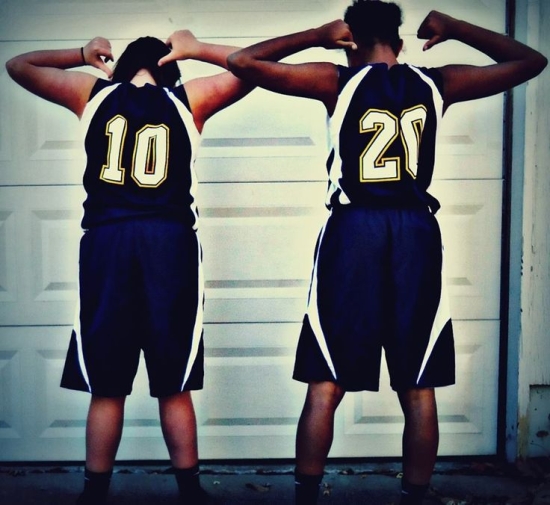In the busy world of school life, where students juggle classes and exams, we often overlook how sports contribute to making friends. But look closer, and you'll find a force that not only keeps us fit but also helps us form lasting connections. In this exploration, we'll uncover how sports and making friends go hand in hand for students, showing how the playing field becomes a place where friendships take root and grow.
The Common Ground of the Playing Field
Picture this: a diverse group of students bonding on the sports field, each with a unique background, interests, and talents. What unites them? The love for the game. Sports provide a common ground, a neutral territory where individuals from various walks of life can unite, leaving any distinctions behind. It’s like a linkedIn for students but in real life.
On the playing field, the lines that delineate social groups blur, creating an inclusive space where everyone is equal, united by a shared passion. This leveling effect is a powerful catalyst for the initiation of conversations, the foundation of friendships. When a group of students shares the thrill of scoring a goal, the satisfaction of a well-executed play, or the camaraderie of a team victory, the bonds formed on the field transcend the superficial boundaries of cliques and stereotypes.
Communication beyond Words
In sports, communication goes beyond verbal expression. The language of the game is universal. A well-timed pass, a synchronized movement, or a coordinated play speaks volumes, fostering a unique form of non-verbal communication that is integral to team sports. This non-verbal synergy on the field lays the groundwork for understanding and cooperation, building bridges between individuals who may have otherwise struggled to connect.
In the fast-paced environment of a game, students learn the art of teamwork, collaboration, and mutual support. These qualities, honed on the sports field, seamlessly translate into everyday interactions, forging bonds beyond the game itself. As friendships develop, students discover that skills like communication, teamwork, and resilience become invaluable assets not only in sports but in academic life.
The Role of Healthy Competition
Competition, when approached with a healthy mindset, can be a powerful tool for personal growth and the development of friendships. Through sports, students learn to appreciate the value of competition as a means of self-improvement rather than a zero-sum game. The pursuit of excellence on the field becomes a shared endeavor, fostering an environment where students push each other to achieve their best.
Within the framework of sportsmanship, competition takes on a positive dimension. Whether on the winning or losing side, students recognize the mutual respect that underpins healthy competition. This shared respect becomes the cornerstone of lasting friendships as individuals appreciate the effort, dedication, and passion their peers bring to the game.
Breaking Down Social Barriers
Sports have a unique ability to break down social barriers that may hinder the formation of friendships in other settings. When students engage in sports, they do so not as representatives of a particular social stratus but as individuals united by a common interest. This shared pursuit allows students to see beyond the surface-level differences that may otherwise contribute to social stratification.
The football field, the basketball court, or the track becomes a melting pot where diversity thrives and stereotypes dissipate. Whether a math whiz, an art enthusiast, or a science prodigy in the sports field, students shed their labels and assumptions, discovering each other as individuals with unique strengths and passions. This shared discovery fosters an environment where genuine connections can take root, reducing the limitations of preconceived notions.
The Lifelong Impact of Sports Friendships
The friendships forged on the sports field are not fleeting connections but enduring bonds that often last a lifetime. Beyond the school years, the shared memories of victories and defeats, the laughter during practice, and the sense of belonging on the team create a tapestry of experiences that students carry into adulthood.
These sports-forged friendships serve as a support system during life's inevitable challenges. Whether navigating the complexities of a career, facing personal struggles, or celebrating milestones, the camaraderie born on the playing field provides a foundation of trust and understanding. The lessons learned through sports, such as perseverance, teamwork, and resilience, become the cornerstones of enduring friendships that weather the test of time.
A Message to Parents
Parents should understand that encouraging their children to participate in sports also invests in their ability to build relationships. When you see your child in a sports jersey or tying their sports shoes, recognize that they are not just playing a game. They actively shape their social identity and lay the groundwork for meaningful, lifelong friendships.
The bonds formed on the sports field become an essential support system, influencing their emotional well-being, self-esteem, and overall satisfaction with life. Indeed, the benefits are so many that sometimes it seems better to encourage some help from academic sites like https://speedypaper.com/ so that your child could have more time for sports and friends.
Final Thoughts
In dynamic student life, sports emerge as a thread that weaves together individuals from diverse backgrounds, fostering friendships that transcend the boundaries of classrooms and cliques. The playing field becomes a microcosm of society where students learn the art of communication, the value of healthy competition, and the power of breaking down social barriers.





Comments powered by CComment